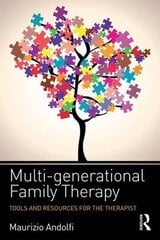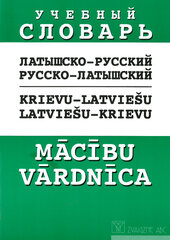-
Vaikams ir kūdikiams
- Kūdikio priežiūrai
- Maitinimo priemonės
- Prekės mamoms
- Autokėdutės ir jų priedai
- Vaikiški vežimėliai ir jų priedai
- Maniežai vaikams
- Gultukai ir sūpynės
- Kūdikių ir vaikų maistas
- Nešioklės
- Antspaudai kūdikiams
- Vaikštynės
- Čiužiniai kūdikiams
- Sauskelnės
- Kūdikių lovytės
- Patalynė kūdikiams
- Kūdikio kraitelis
- Saugos varteliai, apsaugos
- Drabužiai kūdikiams
-
Kvepalai, kosmetika
- Makiažo pagrindai, pudros
- Bronzantai, skaistalai
- Lūpų dažai, blizgiai, balzamai, vazelinai
- Akių šešėliai, pieštukai, blakstienų tušai, serumai
- Manikiūro, pedikiūro priemonės
- Kosmetinės, veidrodėliai
- Makiažo šepetėliai, kempinėlės
- Nagų lakai, stiprintojai
- Antakių dažai, pieštukai
- Priklijuojamos blakstienos, blakstienų rietikliai
- Veido kremai
- Veido prausikliai, valikliai
- Veido aliejai, serumai
- Veido kaukės, paakių kaukės
- Veido masažuokliai, valymo įrankiai
- Paakių kremai, serumai
-
Buitinė technika ir elektronika
- Vandens filtrai
- Virduliai
- Gruzdintuvės
- Kavos aparatai
- Trintuvai, smulkintuvai
- Svarstyklės (virtuvinės)
- Vaflinės, el. blynų keptuvės
- Išskirtiniai maisto gaminimo prietaisai
- Kavamalės
- Vakuumatoriai
- Pjaustyklės, peilių galąstuvai
- Daigyklos, lempos augalams
- Plakikliai
- Virtuviniai kombainai
- Garų puodai, daugiafunkciai puodai
- Sumuštinių keptuvės
- Kokteilinės
- Skrudintuvai
- Sulčiaspaudės
- Gazuoto vandens aparatai ir priedai
- Mėsmalės
- Griliai, marinatoriai
- Vaisių džiovyklės
- Vandens aparatai
- Duonkepės
- Dulkių siurbliai-robotai
- Dulkių siurbliai
- Dulkių siurbliai-šluotos
- Plaunantys siurbliai
- Svarstyklės (buitinės)
- Langų valytuvai
- Garais valantys prietaisai, grindų valytuvai
- Akumuliatoriai dulkių siurbliams
- Dulkių siurblių priedai
- Meteorologinės stotelės, termometrai
- Masažuokliai
- Elektriniai dantų šepetėliai
- Plaukų formavimo ir tiesinimo prietaisai
- Barzdaskutės
- Manikiūro, pedikiūro aparatai
- Plaukų kirpimo mašinėlės
- Plaukų džiovintuvai
- Elektrinių dantų šepetėlių antgaliai
- Šilumos prekės
- Kraujospūdžio matuokliai
- Epiliatoriai
- Irigatoriai
- Veido priežiūros prietaisai
- Inhaliatoriai
- Termometrai
- Masažinės vonelės
- Ventiliatoriai
- Kondicionieriai, šilumos siurbliai, rekuperatoriai
- Šildytuvai
- Oro drėkintuvai
- Vandens šildytuvai
- Grindų ir veidrodžių šildymo kilimėliai
- Vonios ventiliatoriai
- Dūmų detektoriai
- Oro reguliavimo įrangos priedai
-
Apranga, avalynė, aksesuarai
-
Baldai ir namų interjeras
- Virtuvės baldų priedai
- Virtuvinės spintelės
- Virtuvės ir valgomojo kėdės
- Valgomojo komplektai
- Virtuvės ir valgomojo stalai, staliukai
- Virtuvės baldų komplektai
- Virtuvės stalviršiai
- Virtuvės baldų kolekcijos
- Vonios komplektai
- Vonios spintelės
- Vonios veidrodžiai
- Vonios lentynos
- Vonios aksesuarai
- Vonios kambario baldų kolekcijos
- Vaikiškos lovos
- Vaikiški čiužiniai
- Vaikiškos kėdutės ir staliukai
- Vaikiški sėdmaišiai, foteliai, pufai
- Vaikiškos lentynos
- Vaiko kambario baldų komplektai
- Kūdikių lovytės
- Vaikiškos komodos
- Vaikiškos spintos
- Vaikiškos spintelės
- Vaikiški rašomieji stalai
- Vaikiškos mokyklinės kėdės
- Žaislų dėžės
- Vaikų kambario baldų kolekcijos
-
Virtuvės, buities, apyvokos prekės
- Virtuvės įrankiai
- Kepimo indai, popierius, formos
- Indai, lėkštės, pietų servizai
- Maisto saugojimo indai
- Taurės, puodeliai, ąsočiai
- Puodai, greitpuodžiai
- Keptuvės
- Peiliai ir jų priedai
- Termosai, termopuodeliai
- Kavinukai, virduliai
- Stalo įrankiai
- Prieskonių indeliai, malūnėliai
- Pjaustymo lentelės
- Prieskoniai, prieskonių rinkiniai
- Konservavimo indai ir priedai
- Gertuvės, termo puodeliai
- Vienkartiniai, teminiai indai
- Vandens filtrai
-
Santechnika, remontas, šildymas
- Oro drėkintuvai
- Meteorologinės stotelės, termometrai
- Oro sausintuvai, drėgmės surinkėjai
- Eteriniai aliejai difuzoriams
- Ventiliatoriai
- Oro valytuvai
- Oro reguliavimo įrangos priedai
- Vonios ventiliatoriai
- Kondicionieriai, šilumos siurbliai, rekuperatoriai
- Mechaniniai įrankiai
- Elektriniai įrankiai
- Įrankių dėžės, laikikliai
- Tvirtinimo detalės
- Sandėliavimo lentynos
- Buitinės kopėčios, rampos
- Sniego kastuvai, stūmikliai
- Metalo detektoriai
- Surenkamos lentynų sistemos
- Platforminės svarstyklės
- Sniego valytuvai
- Aukšto slėgio plovimo įranga
- Stebėjimo kameros
- Durų skambučiai, akutės
- Apsaugos sistemos, valdikliai
- Dūmų, dujų detektoriai
- Signalizacijos
- Davikliai, jutikliai
- Domofonai
- Apsaugos sistemų priedai
- LED juostos
- Elektros jungikliai, rozetės
- Elementai
- Žibintuvėliai, prožektoriai
- Prailgintuvai
- Elementų krovikliai
- Elektros lemputės
- Komponentai saulės jėgainėms
- Maitinimo šaltiniai
- Tekstiliniai kabeliai ir elektros kaladėlės
- Laikmačiai, termostatai
- Įmontuojami šviestuvai, LED panelės
-
Kompiuterinė technika
- Korpusų priedai
- Vidiniai kietieji diskai (HDD, SSD, Hybrid)
- Operatyvioji atmintis (RAM)
- Korpusai
- Valdikliai
- Komponentų priedai
- Kompiuterių ventiliatoriai
- Termo pastos
- Maitinimo šaltiniai (PSU)
- Pagrindinės plokštės
- Procesorių aušintuvai
- Vaizdo plokštės (GPU)
- Optiniai įrenginiai
- Procesoriai (CPU)
- Aušinimas vandeniu - aksesuarai
- Garso plokštės
- Vaizdo plokščių aušintuvai
- TV imtuvai, FM, video plokštės
- Aušinimas vandeniu - rinkiniai
-
Mobilieji telefonai, Foto ir Video
- Telefonų dėklai
- Apsauginės plėvelės telefonams
- Telefono laikikliai
- Mobilieji telefonai
- Krovikliai telefonams
- Laidai telefonams
- Atsarginiai maitinimo šaltiniai (power bank)
- Atminties kortelės telefonams
- Priedai telefonams
- Telefonų dalys ir įrankiai jų remontui
- Asmenukių lazdos (selfie sticks)
- Akumuliatoriai telefonams
- Laisvų rankų įranga
- Ausinės
- Priedai fotoaparatams
- Dėklai, krepšiai fotoaparatams ir objektyvams
- Fotografijos apšvietimo įranga
- Akumuliatoriai fotoaparatams
- Skaitmeniniai fotoaparatai
- Atminties kortelės fotoaparatams, kameroms
- Momentiniai fotoaparatai
- Fotoaparato stovai
- Objektyvai
- Fotoaparatų krovikliai
- Filtrai objektyvams
- Įkraunami elementai
-
Sportas, laisvalaikis, turizmas
- Turistinis inventorius
- Gertuvės
- Turistinės ir kelioninės kuprinės
- Turistinio inventoriaus, drabužių ir avalynės priežiūros priemonės
- Pripučiami čiužiniai ir baldai
- Turistiniai čiužiniai ir kilimėliai
- Turistiniai baldai
- Palapinės
- Alpinizmo įranga
- Miegmaišiai
- Biotualetai
- Autoturizmo reikmenys
- Priemonės nuo uodų
- Gimnastikos ir fitneso prekės
- Masažo reikmenys
- Vandens sportas
- Kuprinės ir krepšiai
- Įtvarai
- Futbolas
- Rakečių sportas
- Kovos menai
- Krepšinis
- Ėjimo lazdos
- Smiginis
- Golfas
- Žingsniamačiai, chronometrai, širdies ritmo monitoriai
- Tinklinis
- Baletas ir meninė gimnastika
- Diskgolfas
- Kamuolių pompos ir adatos
- Beisbolas
- Jojimo prekės
- Rankinis
- Grindų ir žolės riedulys
- Dviračiai, riedučiai, riedlentės
- Svoriai, svarmenys, grifai
- Žaidimų stalai
- Treniruokliai, treniruočių įranga
- Kamuoliai
- Aminorūgštys
- Angliavandeniai
- Baltymai
- Batonėliai
- Kiti papildai ir preparatai
- Energetikai
- Funkcinis maistas
- Glutaminas
- Kreatinas
- L-karnitinas
- Papildai ir preparatai masei auginti
- Papildai ir preparatai sąnariams
- Produktai atsistatymui
- Riebalų degintojai
- Papildai ir preparatai lieknėjimui
- Testosterono skatintojai
- Vitaminai
-
Autoprekės
-
Sodo prekės
- Sodo technikos dalys
- Drėgmės, temperatūros, pH, ORP matuokliai
- Lapų siurbliai, šakų smulkintuvai, trinkelių valytuvai
- Trimeriai (žoliapjovės), krūmapjovės
- Gyvatvorių, žolės žirklės
- Vejapjovės, žoliapjovės
- Karučiai
- Malkų skaldyklės
- Aeratoriai, kultivatoriai
- Žemės grąžtai
- Žoliapjovės, vejos robotai
- Sodo traktoriukai
- Šlavimo mašinos
-
Dovanos, dekoracijos, gėlės
- Kvepalai Jai
- Kosmetika Jai
- Aksesuarai moterims
- Mobilieji telefonai
- Belaidės ausinės
- Kvapų difuzoriai
- Dulkių siurbliai-robotai
- Kavos aparatai
- Išmanieji laikrodžiai, apyrankės
- Gruzdintuvės
- Namų kvapai
- Plaukų formavimo ir tiesinimo prietaisai
- Epiliatoriai
- Plaukų džiovintuvai
- Veido priežiūros prietaisai
- Elektriniai dantų šepetėliai
-
Gyvūnų prekės
- Drabužiai šunims
- Žaislai šunims
- Dubenėliai, dėžės maistui
- Guoliai, pagalvėlės
- Transportavimo narvai, krepšiai
- Sausas maistas šunims
- Priežiūros priemonės gyvūnams
- Skanėstai šunims
- Kelioniniai reikmenys
- Pavadėliai šunims
- Antkakliai, petnešos šunims
- Vitaminai, papildai, antiparazitinės priemonės šunims
- Konservai šunims
- Kosmetinės priemonės gyvūnams
- Dresūros priemonės šunims
- Žaislai katėms
- Sausas maistas katėms
- Draskyklės
- Konservai katėms
- Kraikas katėms
- Kačių tualetai
- Skanėstai katėms
- Vitaminai, papildai, antiparazitinės priemonės katėms
- Pavadėliai, antkakliai, petnešos katėms
- Guoliai, pagalvėlės
- Transportavimo narvai, krepšiai
- Dubenėliai, dėžės maistui
- Kosmetinės priemonės katėms
- Priežiūros priemonės katėms
-
Apsauginės, dezinfekcinės, medicininės prekės
- Kaukės, respiratoriai
- Apsauginės sienelės, dezinfekcinės stotelės
- Dezinfekcinis skystis
- Vienkartinės pirštinės
- Dezinfekciniai valikliai
- Apsauginiai skydeliai ir akiniai
-
n18.lt specializuota parduotuvė
n18.lt specializuota parduotuvė suaugusiems
Prekes suaugusiems specializuotoje internetinėje parduotuvėje n18.lt gali matyti tik lankytojai, kurie yra ne jaunesni nei 18 metų. Šioje svetainėje skleidžiama informacija gali daryti neigiamą poveikį asmenims iki 18 metų.Peržiūrėti prekes -
Knygos
-
Išmanūs namai
- Maisto prekės
- Išparduotuvė
-
Biurui, mokyklai, kūrybai
Rodyti daugiau kategorijų

 Visų sezonų prekės iki -60%* ir greitas pristatymas**!
Visų sezonų prekės iki -60%* ir greitas pristatymas**! 































![Japanese Kanji for Beginners: (JLPT Levels N5 & N4) First Steps to Learn the Basic Japanese Characters [Includes Online Audio & Printable Flash Cards] Japanese Kanji for Beginners: (JLPT Levels N5 & N4) First Steps to Learn the Basic Japanese Characters [Includes Online Audio & Printable Flash Cards] kaina ir informacija | Užsienio kalbos mokomoji medžiaga | pigu.lt](https://lt2.pigugroup.eu/colours/623/279/38/62327938/japanese-kanji-for-beginners-jlpt-levels-n5-2289f_large.jpg)




































